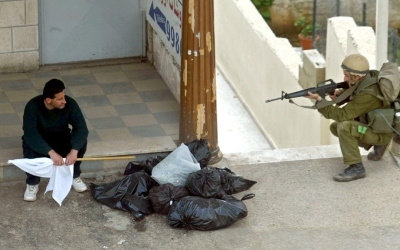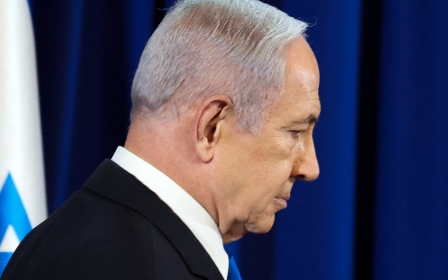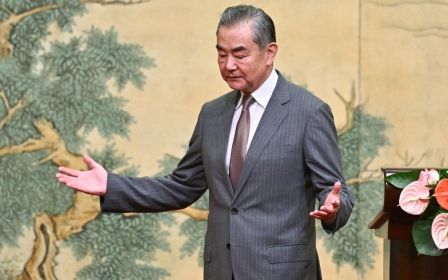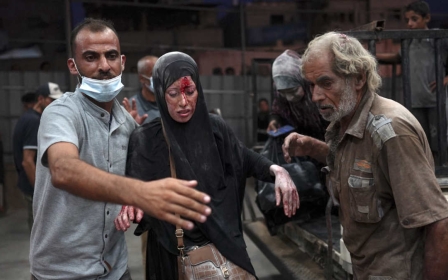Israel offered Mohammed Dahlan 'keys to Gaza' in 2002, newly released files show
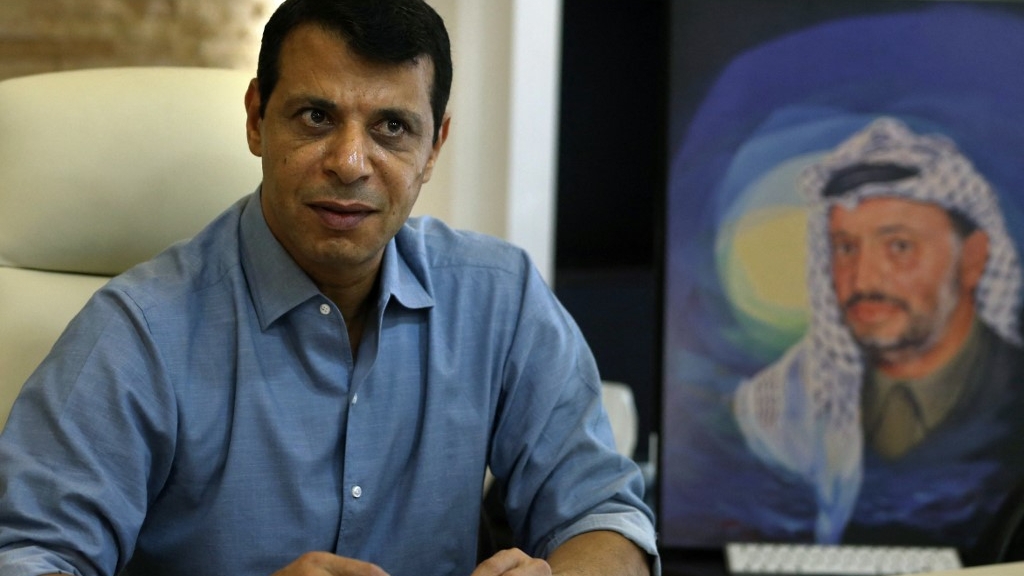
Israel "offered the keys of Gaza" to Mohammed Dahlan at the height of the Second Intifada, but the Palestinian Authority (PA) security chief in Gaza declined, citing loyalty to then-leader Yasser Arafat, newly released official files seen by Middle East Eye show.
A little over two decades later, Dahlan is reportedly top of the list for some US, Israeli and Arab officials who want him to take temporary control of a post-war Gaza.
A Wall Street Journal report on Thursday said he is favoured by the parties to take charge of security in the enclave because he is independent of both Hamas and the PA.
One option under consideration would have Dahlan oversee a 2,500-strong Palestinian security force coordinating with an international force as Israeli troops pull out, Arab officials told the Journal.
The report also says that Hamas has "softened its opposition to Dahlan" in recent weeks, although senior Hamas official Bassem Naim told the paper it would be "unacceptable for any party to be imposed from above".
New MEE newsletter: Jerusalem Dispatch
Sign up to get the latest insights and analysis on Israel-Palestine, alongside Turkey Unpacked and other MEE newsletters
On Thursday, Dahlan said in a statement on X that he would "not support any choice that has not been reached based on Palestinian national understandings".
Such an understanding would lead to a rebuilding of the Palestinian political system and an international action plan resulting in the creation of an independent state with Jerusalem as its capital, he said.
"I have repeatedly refused to accept any security, governmental or executive role," he said.
Indeed in 2002, he told Israeli officials that he would not take control of Gaza "without Arafat's say-so", according to a report of a meeting between British and Israeli officials released by the National Archives this week.
'The keys to Gaza'
The April 2002 meeting brought together Israeli Defence Minister Benjamin Ben-Eliezer, Lord Levy, Tony Blair's special envoy to the Middle East, and British ambassador Sherard Cowper-Coles.
A month earlier, following a wave of suicide attacks which killed dozens of Israelis, Israeli Prime Minister Ariel Sharon had launched a major ground incursion into the occupied West Bank.
By the time of the meeting, archived documents show British officials had grown increasingly concerned over media reports of serious human rights violations committed by the Israeli military.
Levy and Cowper-Coles repeatedly pressed Ben-Eliezer in the meeting to explain "the military and political logic" of the campaign, according to a meeting note.
The Israelis had said they were attempting to reduce terrorism and dismantle terrorist infrastructure, but the diplomats expressed doubt that the incursion would achieve this.
"Lord Levy added that the essential point was that three and a half million Palestinians could not be kept under Israeli military occupation," the note says. "Britain stood ready to help in securing Israeli withdrawal."
Levy said he was prepared to meet with Arafat, who was under an Israeli military siege in his compound. But Ben-Eliezer said the Israeli security cabinet had decided that no one could see Arafat, including US Middle East envoy Anthony Zinni.
Ben-Eliezer said he agreed "there was no military solution" and that he had favoured negotiations. "But Sharon's way was not Fuad's way," the note says, calling the defence minister by his birth name and frequent nickname.
"The present situation was entirely Arafat's fault," the note attributed to Ben-Eliezer. "Fuad had offered the keys of Gaza to Dahlan, but neither he nor [then Palestinian security chief in the West Bank Jibril] Rajoub would move without Arafat's say-so."
Later that year, after nearly 500 Palestinians were killed in the operation and Arafat's compound was under Israeli military siege for the second time that year, Dahlan wrote: "As long as the Israelis are against Arafat, I'm with him."
In 2006, Dahlan was elected as Palestinian Legislative Council representative for Khan Younis, the city in Gaza where he was born and raised. He was elected to the Fatah Party's central committee in 2009.
But in 2011, he was dispelled from Fatah after a bitter row with PA President Mahmoud Abbas and the party. He has lived in exile in the United Arab Emirates ever since.
Dahlan is understood to have worked in recent months on getting aid into Gaza and said on Thursday that his highest priority was to end the war.
"All my colleagues and myself are only involved to provide everything we can to bring relief to our people in Gaza with generous and continuous support from our brothers in the United Arab Emirates throughout this ongoing dirty genocide," he tweeted.
"We strongly affirm that our highest priority now is to end the war. We will not support any choice that has not been reached based on Palestinian national understandings.
"Such understanding would lead us to rebuilding the Palestinian political system through a transparent democratic process, as well as securing a documented and scheduled international action plan that would result in the culmination of the struggles of our people in the creation of their independent state with Jerusalem as its capital," he added.
Middle East Eye delivers independent and unrivalled coverage and analysis of the Middle East, North Africa and beyond. To learn more about republishing this content and the associated fees, please fill out this form. More about MEE can be found here.


